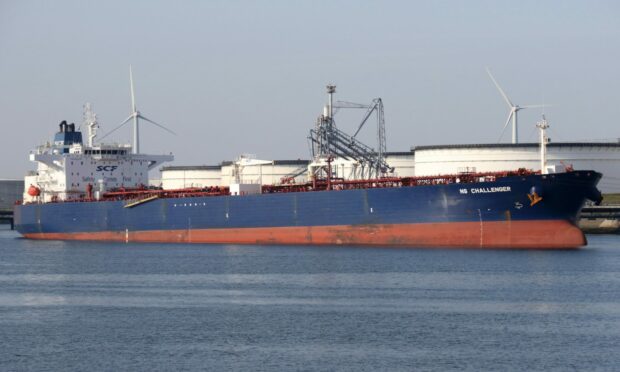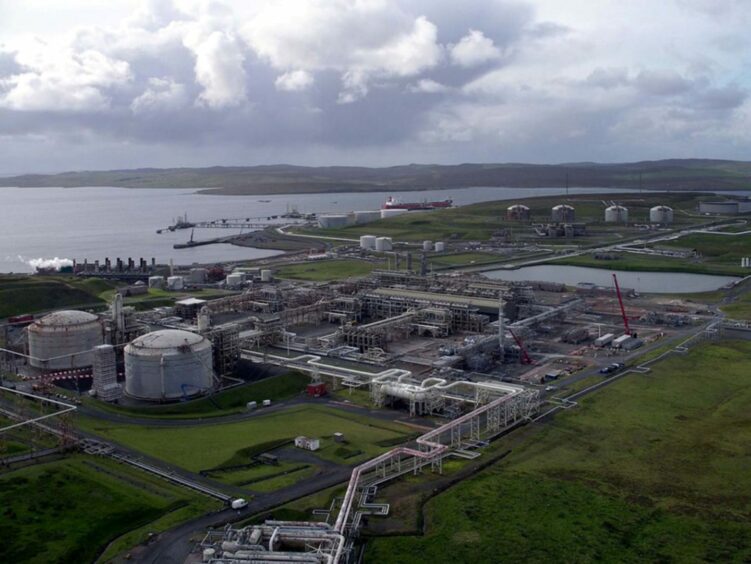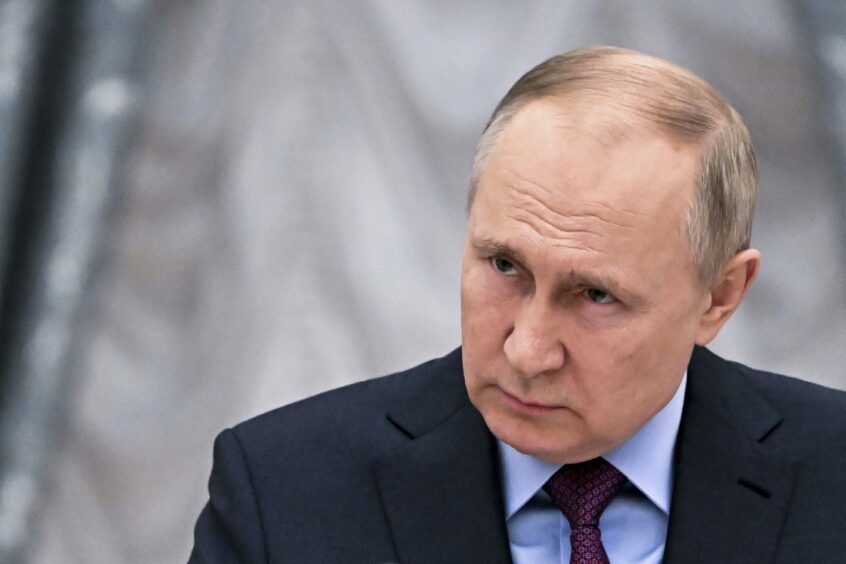Isles MP Alistair Carmichael said he is at a loss as to how to respond to some of his constituents who have been in touch wondering why a tanker operated by Russian state-owned company Sovcomflot is allowed to load oil at Sullom Voe Terminal on the same day Russia has invaded Ukraine.
Speaking in parliament on Thursday afternoon, ahead of prime minister Boris Johnson’s statement in response to the Russian invasion, Carmichael said something that seemed unthinkable for his generation, an armed conflict in the centre of continental Europe, has now become “a very real possibility”.
And he blamed the UK and Western European governments for sending out the wrong signals since at least the Russian annexation of the Crimea in 2014.
He said the Russian government had clearly understood that despite some sanctions announced on Tuesday it was “business and usual”, and the Russian tanker currently berthing at oil port of Sullom Voe was testament of that.
Business as usual?
The 244 metre NS Challenger, registered in Liberia, is part of a large fleet of tankers owned and operated by Sovcomflot, one of the world’s largest players in the oil and gas transportation business.
The company is majority-owned by the Russian government. The company’s board of management is reported to be close to the Russian presidential administration.
The NS Challenger is on charter to BP and is due to take a cargo of crude to the Swedish port of Brefjorden. BP did not respond to a request for comment when contacted on Thursday morning.
Mr Carmichael said: “What does that tell us? It tells us that everything that the government has said this week has been heard in Russia, has been understood in simple terms of saying it is business as usual.
“Why on earth, my constituents ask me, are we exporting a strategically important commodity such as oil out of Shetland at the moment in Russian owned and operated tankers, and I do not know what answer I can give them, other than the fact that we have continued even at the eleventh hour and 59th minute to send the wrong signals.”
Wrong signals
Shetland Islands Council (SIC) chief executive Maggie Sandison said the council, as port operator, had no choice by to comply with its “open port duty” which means “that the harbour must be open to anyone for the shipping and unshipping of goods and the embarking and landing of passengers, on payment of the harbour dues.”
She added: “If the UK Government determine that their sanctions will apply to shipping, the council will be advised by the Department of Transport how the duty has been altered and what action we must take.
“The owners and charterer of vessels will I am sure, be considering their exposure to increased sanctions and make decisions about how best to manage those risks but this is not a matter for the council to be engaging on.”
Speaking in response to the Russian invasion of Ukraine, Mr Carmichael added: “Putin has built up a reported reserve in the region of $640 billion, so it is clear that he will be able to withstand economic sanctions for some time, and I don’t think we should overestimate the opportunities that they bring.
“I like many people find myself here in a difficult contest between what my head and my heart tells me.
“My head tells me that we have seen all this before; my head tells me that despots using foreign policy to distract attention from problems at home (…); my head tell me that history tells us that appeasement never works.
“But at the same time my heart says that this risks taking us to a place where you have armed conflict in continental Europe, something which I as somebody born in 1965, brought up through the 70s and 80s believed would be something that was just something that was impossible and unthinkable. But now we need to confront the reality of that very real possibility.”


